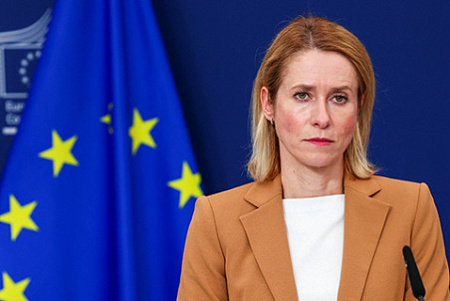
The European Union is bracing for a contentious two-day summit this Thursday, where critical decisions on Ukraine’s membership bid and a new round of sanctions against Russia are poised to be challenged by Hungarian Prime Minister Viktor Orbán. The high-stakes meeting in Brussels is set to become a major test of the bloc’s unity amidst ongoing geopolitical crises, with the Middle East escalation also on the agenda.
Leaders plan to send a powerful message of support for Ukraine’s European aspirations. According to EU High Representative Kaja Kallas, the goal is to affirm that “Europe is their family” and to advance Kyiv’s accession process. The EU hopes Ukrainian President Volodymyr Zelenskyy will attend the session, where a key document greenlighting the start of detailed membership negotiations is expected to be approved by all member states—with the potential exception of Hungary.
Budapest has been vocal in its intent to obstruct any progress on Ukraine’s EU integration. “We want to prevent NATO and the EU from establishing institutional relations with Ukraine that will bring war and financial chaos upon us,” Orbán declared. He justifies his position by citing a recent national referendum and argues that Ukraine’s hasty accession would drag the EU into a direct conflict with Russia while devastating its economy, particularly the agricultural sector.
Another major flashpoint is the proposed 18th package of sanctions against Russia. The measures, drafted by the European Commission, are extensive, targeting transactions related to the Nord Stream gas pipelines, adding 77 vessels to a blacklist of Russia’s “shadow fleet” of oil tankers, and cutting off two dozen more Russian banks from the SWIFT payment system. The package also aims to disrupt Russia’s drone production supply chain and includes a controversial proposal to lower the price cap on Russian oil from $60 to $45 per barrel.
However, Hungary, along with Slovakia, has threatened to veto the entire sanctions package unless the EU drops a separate plan to phase out all Russian fossil fuel imports by the end of 2027. Orbán argues the energy ban is ill-timed, pointing to the risk of soaring global energy prices due to the escalating conflict in the Middle East. Since sanctions require unanimous consent, Budapest is using its veto power as powerful leverage.
Analysts note that a Hungarian veto would cast significant uncertainty over Ukraine’s EU talks, as formal progress requires the unanimous backing of all member states. The political stalemate underscores deeper concerns within the bloc. Ironically, some view Hungary’s disruptive tactics as a constant reminder of the potential pitfalls of past “premature” EU enlargements, which can complicate consensus-based decision-making on critical issues.
The push for new sanctions has also faced headwinds beyond Budapest. The proposal to tighten the Russian oil price cap lost momentum after the EU failed to secure unequivocal backing from the United States at a recent G7 meeting. European Commission President Ursula von der Leyen has since signaled a step back on the issue, citing market volatility, a move that has reportedly caused friction with more hawkish member states.
Despite the stark divisions and Orbán’s firm rhetoric, a last-minute compromise remains possible. The Hungarian leader has cultivated a reputation as a shrewd negotiator adept at striking deals that benefit Budapest. As the summit approaches, all eyes will be on Brussels to see whether it can forge a deal that preserves its unity or if Hungary will once again play the role of spoiler on the European stage.
